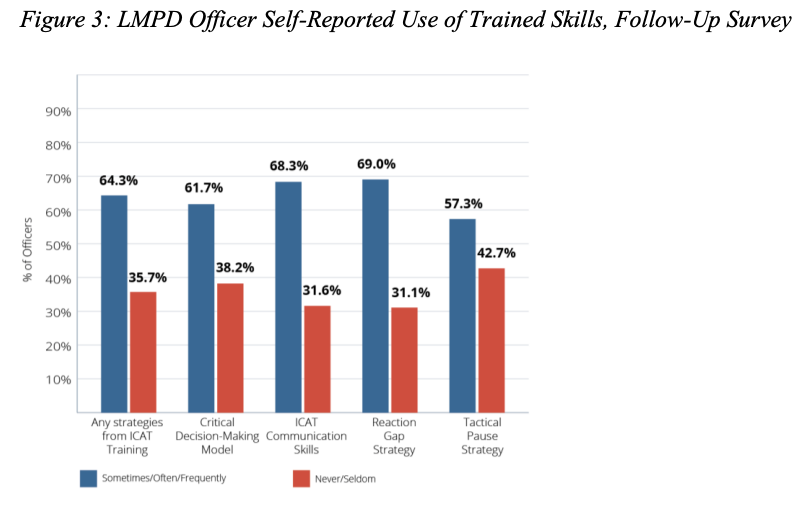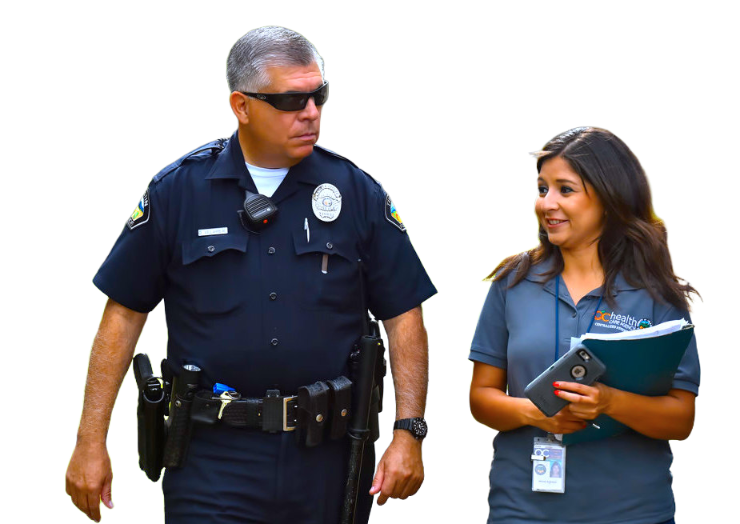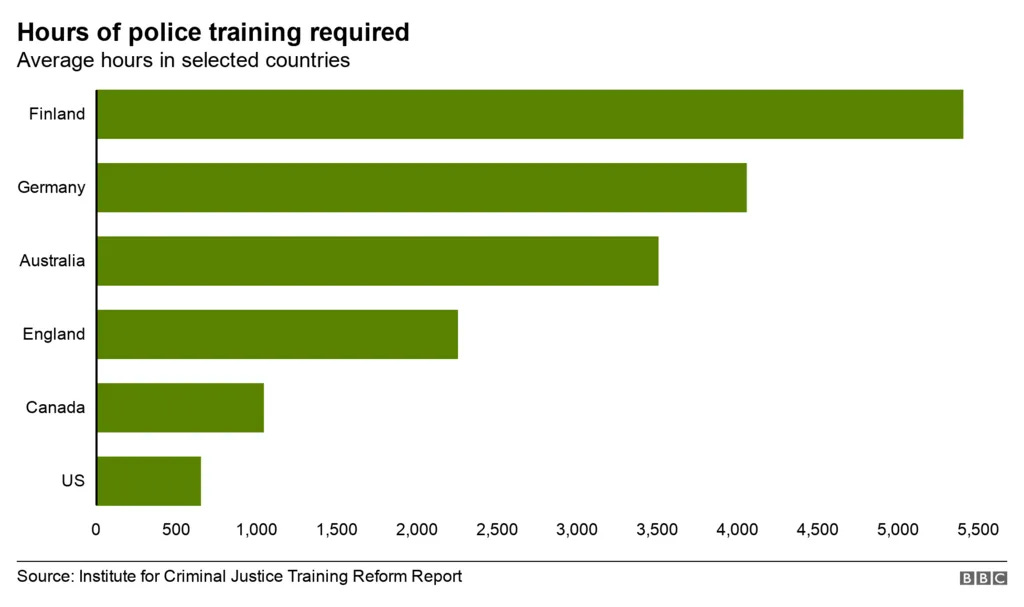The Critical Intersection of Law Enforcement and Mental Health: A Call for Urgent Reform in Crisis Response
Addressing the Disproportionate Use of Force and the Need for Specialized Training
Rethinking Police Response: The Urgent Need for Enhanced Mental Health Crisis Training
In the United States, a stark and troubling statistic has emerged: approximately 25% to 50% of individuals killed by police were in the midst of a mental health crisis at the time of their death123. This alarming data underscores a significant gap in how law enforcement often interacts with those experiencing mental distress. It highlights not just a public safety issue but also a public health crisis, calling for a reevaluation of police training and response strategies.
Here are three shocking facts that further illustrate the severity of the situation:
Deaths in Welfare Checks: One in ten people killed by police in the U.S. was during a mental health or welfare check, highlighting a tragic outcome when police are dispatched for what should be a supportive visit4 .
Lack of Training: Despite the high frequency of police encounters with individuals in mental health crises, many officers receive only a median of 8 hours of crisis intervention training, compared to nearly 60 hours dedicated to firearms training5.
Increased Risk of Fatal Encounters: Individuals with untreated mental illness are 16 times more likely to be killed during an encounter with police than the general population6.
The Scale of the Problem
The intersection of law enforcement and mental health crises is more common than many might realize. Police officers frequently become the default first responders to these situations, not out of choice, but due to the lack of immediate alternatives7. However, traditional police training, which predominantly focuses on law enforcement and public safety, often leaves officers ill-prepared to deal with the nuances of mental health emergencies. This can lead to tragic outcomes where force is used, sometimes lethally, when de-escalation techniques might have been more appropriate8.
Real-life Example
In 2020 in Salt Lake City, Utah, a 13-year-old boy with Asperger's syndrome was shot by police after his mother called 911 seeking help during his mental health crisis. The mother had specifically asked for a crisis intervention team, but the situation escalated, leading to the boy being shot. He was reported to be in serious condition following the incident. This case sparked a significant public outcry regarding the need for better-trained responses to mental health emergencies by law enforcement, highlighting the tragic consequences when police are not adequately prepared to handle such situations9.
This story, while devastating, underscores the critical need for specialized training and alternative response strategies, as the mother's request for a crisis intervention team was not met with the appropriate response, leading to a use of force that many argue was avoidable.
Current Training and Its Limitations
Police training in the U.S. varies widely by department, but the typical Crisis Intervention Team (CIT) training, which is designed to equip officers with skills to manage mental health crises, is often minimal, sometimes as little as 8 hours10. This is in stark contrast to the more extensive training for other aspects of police work, such as firearms use, which can exceed 50 hours11
Critics argue that this disparity in training hours reflects a broader societal misunderstanding of mental health crises as criminal behaviors rather than medical emergencies12. The result is often a police response that does not adequately address the needs of individuals in crisis, leading to avoidable escalations and, in some cases, fatalities13.

The Case for Enhanced Training and Alternative Strategies
The need for reform is clear:
More Comprehensive Training: There's a push for more in-depth, scenario-based training for officers, where they can practice de-escalation in controlled environments that simulate real-life mental health crises. Programs like the Mental Health Crisis Response Training (MHCRT) incorporate virtual reality or live-action scenarios, offering officers a chance to learn from diverse perspectives, including those with lived experience of mental illness14 15 16 17
Community-Based Alternatives: Cities like Eugene, Oregon, with the CAHOOTS program, have shown that non-police responses to mental health calls can be both effective and cost-saving. These programs deploy teams of mental health professionals, medics, and sometimes peers with lived experience, reducing the need for police intervention in non-violent crises. Such initiatives have demonstrated success in connecting individuals to care rather than the criminal justice system18 19 20.
Co-Responder Models: Some departments have adopted co-responder models, where mental health professionals work alongside police officers. This approach benefits from immediate access to both law enforcement and mental health expertise, potentially reducing the use of force and improving outcomes for those in crisis 21 22 .
911 Dispatch Diversion: Enhancing the ability of 911 dispatchers to direct mental health crisis calls to appropriate services can also reduce unnecessary police involvement, thereby conserving law enforcement resources for situations where they are truly needed23.
Public and Policy Response
Public discourse, especially on platforms like X, reflects growing awareness and concern over these issues. Discussions range from calls for systemic change in policing to demands for immediate action in training and resource allocation24. There's a consensus among many that police should not be the primary responders to mental health crises unless absolutely necessary.
Policy makers and law enforcement agencies are beginning to respond, with some states and cities experimenting with or implementing these alternative approaches25. Yet, the pace of change is often criticized as too slow, given the urgency of the problem26.
Conclusion
The disproportionate number of individuals with mental health issues being killed by police is not just a statistic; it's a call to action for a more humane, informed, and specialized approach to crisis response. By enhancing training and integrating alternative strategies, there's hope to reduce these tragic outcomes, ensuring that those in mental health crises receive the help they need, rather than facing potentially fatal encounters with law enforcement. As society moves forward, the integration of mental health awareness into public safety protocols becomes not just advisable, but imperative27.
Footnotes:
https://jaapl.org/content/early/2019/09/24/JAAPL.003863-19
"Fatal Force: Police Shootings Database." The Washington Post.
Police Killings: A Mental Health Crisis." Mental Health America.
https://www.washingtonpost.com/investigations/interactive/2022/police-shootings-mental-health-calls/
https://www.mentalhealthfirstaid.org/2018/02/police-need-mental-health-training/
https://www.npr.org/2020/09/18/913229469/mental-health-and-police-violence-how-crisis-intervention-teams-are-failing
https://pmc.ncbi.nlm.nih.gov/articles/PMC8882363/
https://www.npr.org/2020/09/18/913229469/mental-health-and-police-violence-how-crisis-intervention-teams-are-failing
https://edition.cnn.com/2020/09/08/us/salt-lake-city-police-shooting-autistic-boy/index.html
https://www.npr.org/2020/09/18/913229469/mental-health-and-police-violence-how-crisis-intervention-teams-are-failing
https://www.mentalhealthfirstaid.org/2018/02/police-need-mental-health-training/
https://pmc.ncbi.nlm.nih.gov/articles/PMC3769782/
https://www.npr.org/2020/09/18/913229469/mental-health-and-police-violence-how-crisis-intervention-teams-are-failing
https://www.apa.org/monitor/2021/07/emergency-responses
https://www.npr.org/2020/09/18/913229469/mental-health-and-police-violence-how-crisis-intervention-teams-are-failing.
"Innovative Approaches in Police Training." International Association of Chiefs of Police.
"911 Dispatch Diversion for Mental Health Crises." National Emergency Number Association.
"CAHOOTS: A Model for Pre-Hospital Mental Health Crisis Response." White Bird Clinic.
"The CAHOOTS Program: A Case Study." Oregon Health Authority.
"Non-Police Response to Mental Health Crises." Center for American Progress.
"Co-Response Teams: Integrating Mental Health into Policing." Substance Abuse and Mental Health Services Administration.
"Partnerships Between Police and Mental Health Services." Journal of Community Safety and Well-Being.
https://www.apa.org/monitor/2021/07/emergency-responses
https://www.npr.org/2020/09/18/913229469/mental-health-and-police-violence-how-crisis-intervention-teams-are-failing
https://psychiatryonline.org/doi/10.1176/appi.ps.202000572
https://psychiatryonline.org/doi/10.1176/appi.ps.202000572
https://pmc.ncbi.nlm.nih.gov/articles/PMC10027434/



